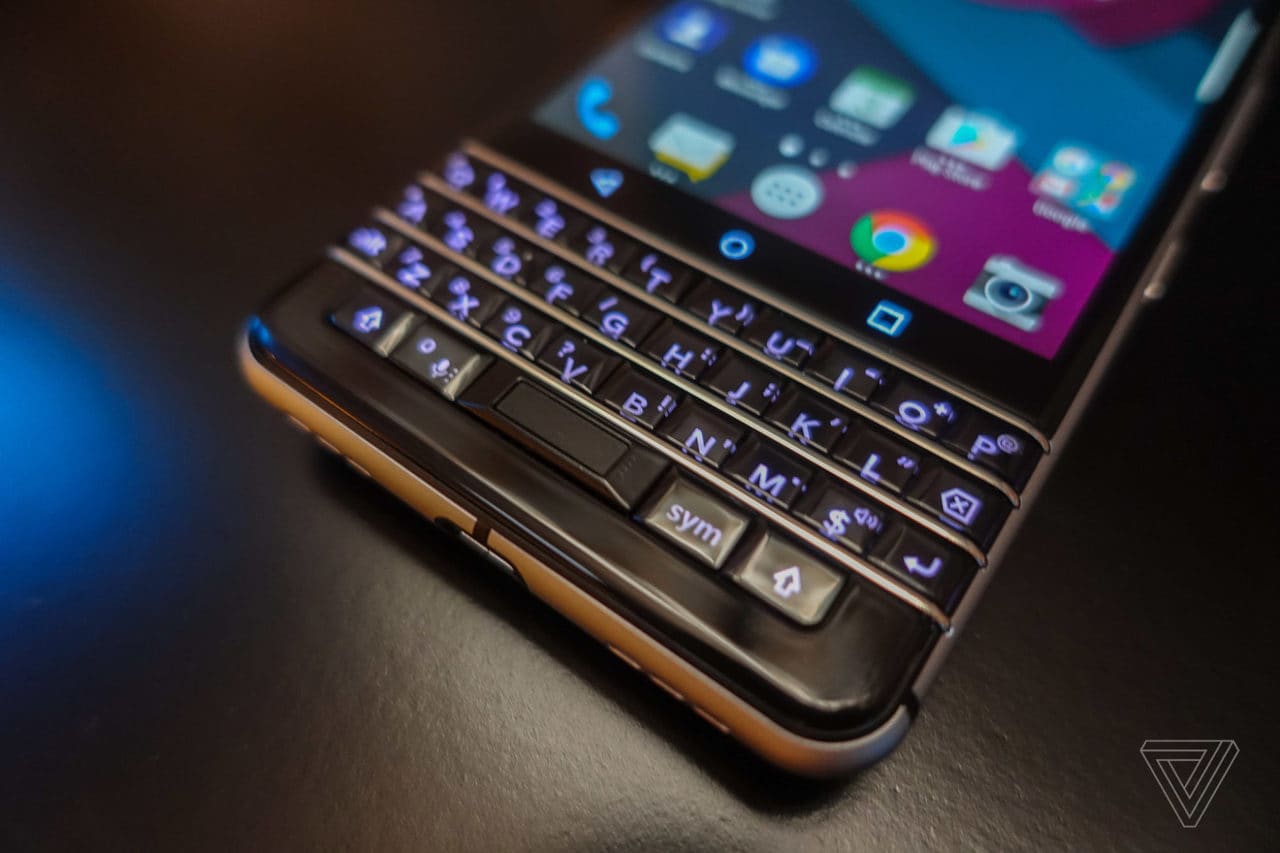The BlackBerry Mercury is expected to pack a classic keyboard and the Android Nougat.
Although the software and specifications for the BlackBerry Mercury is yet to be finalized, it is expected to be an Android phone with lots of promises for global fans of the physical keyboard and secure apps like the BBM offered by BlackBerry’s suite.
Partnership with TCL
Last year BlackBerry chose to transition to the popular Android operating system instead of its own operating system BlackBerry also stopped manufacturing phones in-house and entered a licensing arrangement with TCL who would manufacture the phones and release them under the BlackBerry brand. This way, the BlackBerry brand would continue while BlackBerry itself would focus on its QNX software systems and target the automotive sector. TCL, on the other hand, is an established manufacturer of smartphones for the Alcatel brand.
BlackBerry’s DTEK 50 and DTEK 60 released towards the end of 2016 are among the first smartphones that emerged from the tie-up with TCL. Both these offerings come with the software experience of the BlackBerry Hub, the famous BBM or BlackBerry Messenger and the DTEK security app.
Other licensing arrangements
Apart from TCL, BlackBerry has also entered a licensing agreement with other companies including an Indian company and another agreement for research assistance with Value Labs, another Indian company. The BlackBerry Mercury will also carry these features though the device is expected to pitch against other flagship devices such as the Galaxy S7 from Samsung and iPhone 7 from Apple.
BlackBerry Mercury specifications not finalized yet
While not much has been revealed about the price, specification or release date for the BlackBerry Mercury, we do have some reliable information on its look and feel. An official announcement is expected during the upcoming Mobile World Conference in February 2017. Though the phone will run on Android 7.0 Nougat, the software is yet to be finalized.
BlackBerry Mercury design
As for the design, the BlackBerry Mercury will come with the physical keyboard or QWERTY with capabilities of capacitive gesture similar to the physical keyboard that the BlackBerry Priv sports. Therefore, swiping up/down and left/right on your keyboard to maneuver through the home screen or scrolling through the apps is similar to most other smartphones. A unique feature, however, is the fingerprint sensor embedded in the spacebar on the front part of the device. While this feature still needs to be tested out, it is essentially a unique way to add the sensor to the front panel than having an extended bezel to accommodate the sensor. Strong haptic feedback is also enabled through capacitive navigation buttons right above the keyboard.
Soft touch back could be a drag
The device has a rectangular shape and looks elongated on account of the physical keyboard. In terms of size, it is smaller compared to the likes of Google Pixel and the screen is also smaller. While more specific details are still awaited from BlackBerry, the Mercury looks somewhat chunky and the soft touch back gives it a cheap appearance, when positioned as a flagship phone.
Other features
The Mercury sports a headphone jack and speakers that appear to be down-firing. The charging port between the two speakers is USB Type –C. The Mercury also has a ‘Convenience Key’ found on the other DTEK models which is basically a hotkey that is customizable for specific tools or apps like the camera. The power button is to the left while the volume rocker sits to the right above the convenience key.
While the hardware and software for offerings from the TCL-BlackBerry joint venture are yet to be finalized, the OS will be Android 7.0 Nougat and according to TCL, the mobile team from BlackBerry will be in charge of issuing security updates for the device carrying a digital signature. The updates will also include the monthly Android security updates from Google.
The user-interface is nearly a copy of the stock Android; BlackBerry has added a few tweaks to the OS. For instance, the previous apps are shown in a grid-like layout when you activate the overview button. A series of BlackBerry apps also come pre-installed.
Rumored specs
As mentioned earlier, TCL and BlackBerry are tight-lipped about the specifications for Mercury as yet. Previous rumors have suggested that the device might arrive with Snapdragon 821 and feature a 4.5” display with 1,680×1, 080-pixel resolution. However, the final announcement expected in February might change these.
Can BlackBerry scale greater heights with the Mercury?
The Priv was expected to inject fresh life into BlackBerry, but the high price acted as a deterrent for many BlackBerry fans looking to jump back. The DTEK series has been in the market for some time now and there are no indications to show that it has helped BlackBerry to gain a foothold in the smartphone market. Going by what little is known of the ‘Mercury’ so far, it does hold the promise. We are all hoping that with the right price and specifications, it can enthuse BlackBerry fans looking for the physical keyboard to perk up the demand and give the status of the go-to Android device when Mercury is finally released. One would also expect BlackBerry to issue version and security updates at regular intervals.
Will the ‘Mercury’ challenge market leaders like Apple, Google or Samsung?
BlackBerry still has a strong fan following for the physical keyboard, particularly in the Asian region and only time can tell us if the ‘Mercury’ can challenge the market leaders in the days to come.

